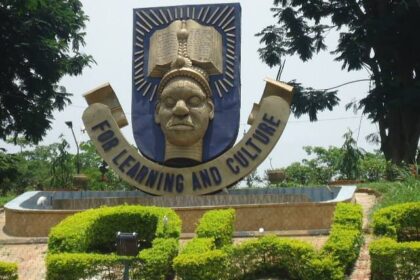*Depositors May Lose Savings As CBN Mops Up Banks’ Deposits In $21bn Loan
*Why CBN Is Unable To Repay Loan
* FG, CBN’s policies making Nigerians poorer – World Bank

Again, Nigeria slips towards complete disrepair due to the consistent omissions of a government frozen in the ice of its own indifference. For the umpteenth time, the country is sad and hurting. No thanks to the cluelessness of the Federal Government, depression afflicts the country like an endless river of lava, scalding all and sundry.
Amid the chaos, churning turbulent waves snake across the country, spitting disasters and misfortunes, and carving into the broad country, poverty and hunger.
More worrisome is the recent revelation of the CBN’s indebtedness to the tune of $21 billion, which is money owed to local commercial banks. The apex bank allegedly obtained the loan from the banks via a “Pay Forward” scheme by which the CBN is expected to help the commercial banks access dollars to finance its forex operations and facilities for customers.
But several months (well over a year) after obtaining the loan from the commercial banks, the CBN has failed to provide the promised facility. This is quite dangerous for the country’s economy and the general well-being of the populace as the money was pooled from depositors’ savings with the affected commercial banks.
What this translates to, argued insiders, is that very soon, there would be a major banking crisis as depositors would find it difficult to access their savings with the banks.
The CBN’s inability to fulfil its end of the bargain and repay the loan has, however, been attributed to a botched transaction with the Nigerian National Petroleum Company Limited (NNPCL). Findings revealed that the NNPCL, under Mele Kyari’s leadership, had been responsible for providing the CBN with that facility from its sale of products. But recently, the petroleum corporation has been unable to make sales to its international clients.
Against the backdrop of these maladies, the recent intervention launched by the NNPCL to help rescue the naira pleased the government but also raised serious posers. While the Federal Government welcomed the NNPCL’s announcement that it had secured a $3 billion emergency crude oil repayment loan from the African Export-Import Bank to help “stabilise the naira” and help in reducing petrol prices, analysts fret that the national oil company still operates like a government department despite its recent supposed transition to a fully commercial, profit-oriented firm.
Fiscal recklessness and lack of accountability have long reigned at the NNPCL, as detailed in multiple reports by domestic and international agencies and via revelations at numerous parliamentary hearings. Its outward makeover last year in line with the provisions of the Petroleum Industry Act mandating its transition from a state corporation to a limited liability enterprise is seen by many analysts to be largely cosmetic. Its long history as a state appendage tied to the whims of the government in power has calcified its state-centric habits.
Nigeria’s economy is truly in crisis with the naira tumbling N1,250 to US$1.Two weeks earlier, it had traded at N950-N960 to $1, spreading panic in official and business circles and distress among Nigerians.
Poverty is spreading, so is hunger, and businesses are under daunting stress. Amid vanishing revenues, depleted foreign reserves, huge debt and servicing obligations, the government is understandably, pleased with the NNPC intervention. Help is urgently required to salvage the precarious situation.
Aside from these recent developments, The Capital findings revealed that there is indeed serious cause for alarm. Going back to the World Bank’s latest assessment of the Nigerian economy. The bank claims that the policies of the Federal Government and the Central Bank of Nigeria (CBN) have contributed to making more Nigerians poor.
The prevalent economic distress in the country further validates the World Bank’s previous warning. The global lender had severally warned Nigeria’s government and economic managers of the negative impact of the country’s multiple exchange rate regime, financing public deficit, and trade restrictions on the economy and people.
The multiple exchange policy has created distortions in the Nigerian economy, forcing businesses to get dollars from the parallel market as the scarcity of foreign exchange worsens.
It would be noted that in the last six years, the CBN, under Godwin Emefiele, has excluded some items from obtaining foreign exchange from the official market. This means that importers of those items cannot get dollars from the official market, which is often cheaper. The items include tomatoes, milk, roofing sheets, textiles, soaps and cosmetics.
The CBN began the ban with 41 items in 2015, but the number has since reached 45. However, eight years after the ban was imposed, the CBN has restored 43 items restricted from the Fx window
“As part of its responsibility to ensure price stability, the CBN will boost liquidity in the Nigerian Foreign Exchange Market by interventions from time to time,” the CBN said.
In 2015, the CBN restricted the availability of foreign exchange to the importation of 43 items which could be locally produced within the country.
The new development was disclosed in a statement signed by Isa AbdulMumin, the CBN’s director of corporate communications.
Once the apex bank restricts any item from the FX market, banks stop issuing the FX form known as ‘Form M’ to importers – a signal that the only way they can bring in the commodity is by seeking FX from the unpredictable and expensive parallel market.
The prevalent economic hardship spread all over the country has been persistently blamed in several quarters as the result of uninformed policy implementation and poor economic management by the country’s administrators.
Pundits, however, urged President Bola Tinubu to elevate long-term national interest above temporary relief and immediately initiate sweeping reforms in the CBN, NNPCL among others.



